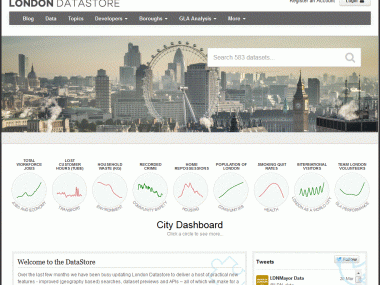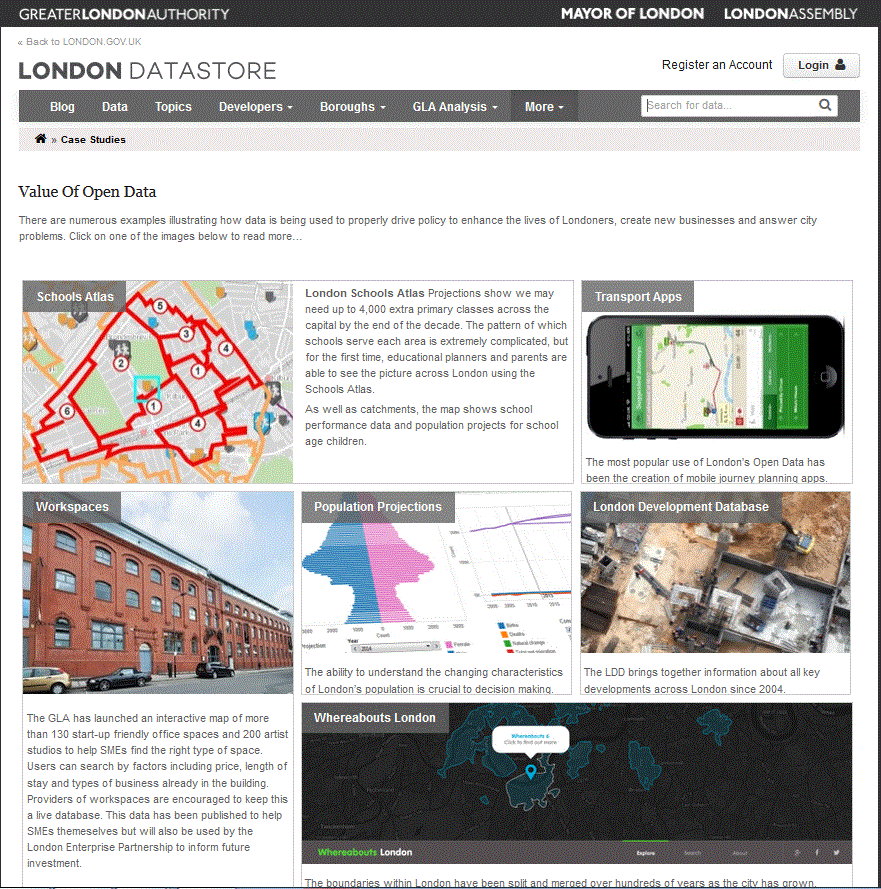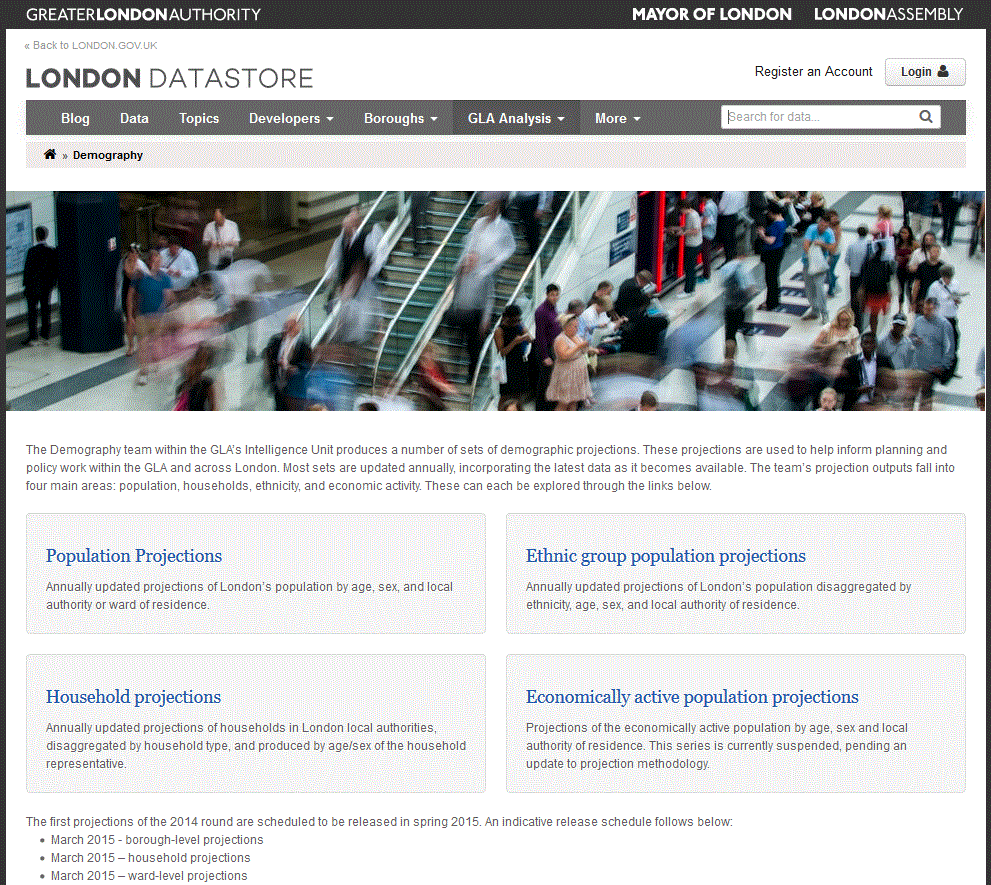Piloting an international city standard. Interview with Andrew Collinge, Assistant Director, Intelligence and Analysis, Greater London Authority
Edited on
21 May 2015Part of good city governance, which URBACT encourages through its tools and capacity building programmes, is to use evidence based approaches, and solid data to underpin urban planning and delivery. A variety of systems and metrics are available to cities, and here we profile the World Council on City Data international standard, that has now been piloted in a number of cities around the globe.

The World Council on City Data (WCCD) is a new body set up to coordinate efforts on open city data to ensure a consistent and comprehensive platform for standardized urban metrics. It is also leading efforts on global implementation of ISO 37120 Sustainable Development of Communities: Indicators for City Services and Quality of Life, a new international standard for cities, created by cities.
ISO 37120 establishes a set of standardized indicators that provide a uniform approach to what is measured, and how that measurement is to be undertaken. The standard does not provide a value judgement, or numeric thresholds on what a particular city should choose as appropriate targets for the indicators. It defines and establishes definitions and methodologies for a set of indicators to steer and measure the performance of city services and quality of life.
London is one of the WCCD foundation pilot cities. Andrew Collinge, Greater London Authority Assistant Director, Intelligence and Analysis talked about their experience.
Why did London become a pilot city for WCCD ISO 37120 ?
We liked the potential for uniformity and comparison. A city like London is measured in myriad ways. We have lots of strategies. So the coherence across the picture is welcome. The WCCD ISO 37120 has a well-developed indicator set and the ISO badge. It is a tool that allows us to strengthen our approach to decision making. Also in London there is an increasing emphasis on how we compare to other global cities and this standard can help with that.
Is it a challenge to get hold of all the data for WCCD?
A lot of the data we already collected fitted easily into the WCCD ISO 37120. That was part of the feasibility study for us. Some data we have to get from other functional bodies such as Transport for London, the Office of National Statistics, the National Department for Work and Pensions.
 We had a distinct advantage over other cities that have to work harder to develop the certification, starting from a different base. For that reason there are different levels of accreditation in the ISO 37120.
We had a distinct advantage over other cities that have to work harder to develop the certification, starting from a different base. For that reason there are different levels of accreditation in the ISO 37120.
For us there were specific challenges around the fact that lots of performance data is in the 33 London boroughs. The risk is that this limits our ability to ask interesting questions across boundaries.
There are also challenges when we come up against unwillingness to share data on the part of some businesses, because they are market competitors, for instance in the energy or broadband sectors. But we have to find ways to collaborate to plan and invest in energy infrastructure, smart grids, 4G and 5G rollout.
How open is the data you collect?
The London Data store has 38,000 individual visitors each month, that is about 17% of all traffic to London.gov.uk. It holds data that is important to politicians, such as monthly statistics for lost customer hours on the tube, number of police officers on the beat. But this data is also useful for the public to hold politicians to account. All the data in the portal is public. All users can look, cross tabulate, index and manipulate the open data. It is all downloadable. This fits with our city ethos on open data.
What international comparisons have you drawn so far?
We can see that there is much to learn from American cities. There is something about American culture, which starts with sports like baseball, that is incredibly statistics driven. They are much more into performance management and data to support it. American cities are more likely to have a data driven board, where deputy mayors will all sit and go through the data on each strand of policy. It shows the value of having a data literate or data appreciative mayor.
How do you see the ISO 37120 developing in future?
Through the WCCD we can go and find out how better cities are working, then transfer knowledge and skills. I see advantages in a programme of work around collaboration and exchange of good practice that is underpinned by all the data.
In future we will be able to integrate more live data into the WCCD platform, as the internet of things starts to become a reality out there. In 2-5 years’ time, even if just for a bounded period of time, we can envisage live data pouring off the infrastructure in the city. For instance, as air quality sensors become prevalent we can measure particulate matter in the atmosphere and have vivid live sets of data to compare with Sao Paolo and Chicago. Then it starts to get super exciting- a set of patterns that you use to understand user behaviour, live data ecosystems in which comparison are being made.
Would you recommend the ISO 37120 to other cities?
Yes definitely. It brings uniformity to complex data. For instance if the Mayor goes on a trade visit to Malaysia, it is helpful to know how we compare. We need to attract foreign direct investment and this tool shows that we are a city that has good quality of life, benefits across a range of indicators, a lot to offer.
Andrew Collinge: Andrew.Collinge@london.gov.uk
 Submitted by Sally Kneeshaw on
Submitted by Sally Kneeshaw on




